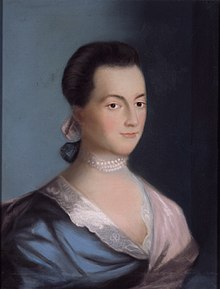How do we become Zambian citizens?
Notice: Undefined index: catFilterList in /home/zambi/public_html/wp-content/plugins/wp-likes/api.php on line 243
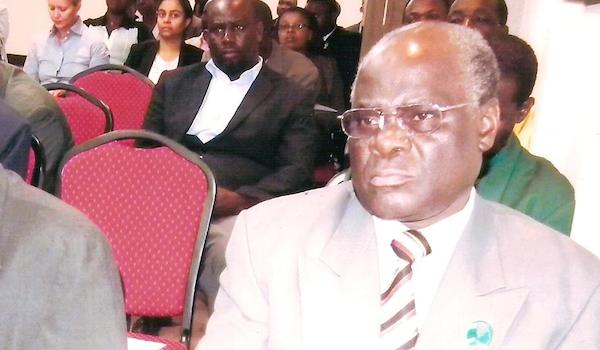
Alfred A K Ndhlovu
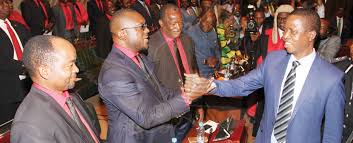
Cornelius Mweetwa with Gary Nkombo and President Lungu
BY Alfred A. K. Ndhlovu
All the people of this country before it became known as Zambia in 1964 were identified by the tribe to which they belonged. The colonial government listed 73 tribes in the 1940s. This list was not revised in the 1950s or later in the 1960s.
This meant that by 1964, it was outdated. Strangely, the list has been a reference point by some politicians of modern times who mistakenly think that Zambia still has 73 tribes. I must argue that the tribal list was not exhaustive as intermarriages gave rise to other people who could not be identified by one tribe only.
Marriage between Black and White peoples added another dimension to tribalism. It was the same with Indians, Chinese, Asians, etc. who added another face to tribalism. But being Zambian today must be paramount.
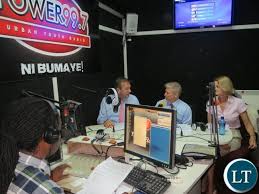
U.S. Ambassador Schultz, German Ambasssador Finke, and Acting British High Commissioner Joyce on Power
The British Empire did not have citizenship for colonies. People were referred to as British Subjects, which also meant that the same people were also known as British Crown Subjects. In this part of Africa, Nyasaland (Malawi), Southern Rhodesia (Zimbabwe), Bechuanaland (Botswana), Tanganyika (Tanzania) and Northern Rhodesia (Zambia) were British colonies. Swaziland and Lesotho were British Protectorates.
South Africa was largely influenced by the British although it was not a colony as such. A white tribe of Afrikaaners, fondly referred to as Boers (Farmers) by local people, emerged in South Africa. The story of Afrikaaners is long because it is these people who introduced apartheid.
Angola and Mozambique were under the Portuguese Colonial Authority. South West Africa (Namibia) was a disputed state and administered by the United Nations and later South Africa.
The Belgians colonized mineral-rich Congo (Democratic Republic of Congo). Tanganyika and South West Africa were originally German colonies which Germany lost after losing the First & Second World Wars.
The people of this region have interacted for a very long time predating arrival of colonialism in the 1800s. Intermarriage has been part of life as sexual relations and marriage are prerogatives of the two people involved in each relationship.
People’s interaction between and within the countries has continued even after the region was completely free in 1994 when the Republic of South Africa settled the issue of racial discrimination, apartheid.
There is a lot of work ahead for RSA government to change the people’s mindset to live harmoniously together. White people need to abandon superiority complex just as much as Black people must abandon inferiority complex. Apartheid is an evil and has no place among civilized communities of RSA today.
The current boundaries of African states were drawn in Berlin, Germany, in 1886. It took time for the borders to be known and be respected. Some countries may still be demarcating the borders, nearly 132 years after they were drawn on paper.
Between 1953 and 1963, the Federation of Rhodesia and Nyasaland was formed by colonial governments without adequate consultation with the local people. This meant that the Northern and Southern Rhodesia and Nyasaland were one country.
Each of the countries in the region has a constitution and laws which define how citizenship can be acquired. Zambian citizenship is acquired through being born in Zambia with both parents being Zambians. Others become citizens through registration, when one, a foreigner, applies to become a citizen of Zambia and naturalization, when one, a foreigner, overstays in the country and later applies to be naturalized as a citizen.
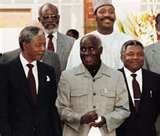
Nelson Rolihlahla Mandela with Kenneth David Buchizya Kaunda
Another way of acquiring Zambian citizenship is when one is a son or daughter of a foreign parent and the other Zambian one. In such a case, a son or daughter has to choose which parent to follow. Ideally, one cannot belong to both. Double or dual citizenship existed in the British Empire. Australia, Canada and New Zealand are gradually discarding dual citizenship as the countries become independent nations outside Britain.
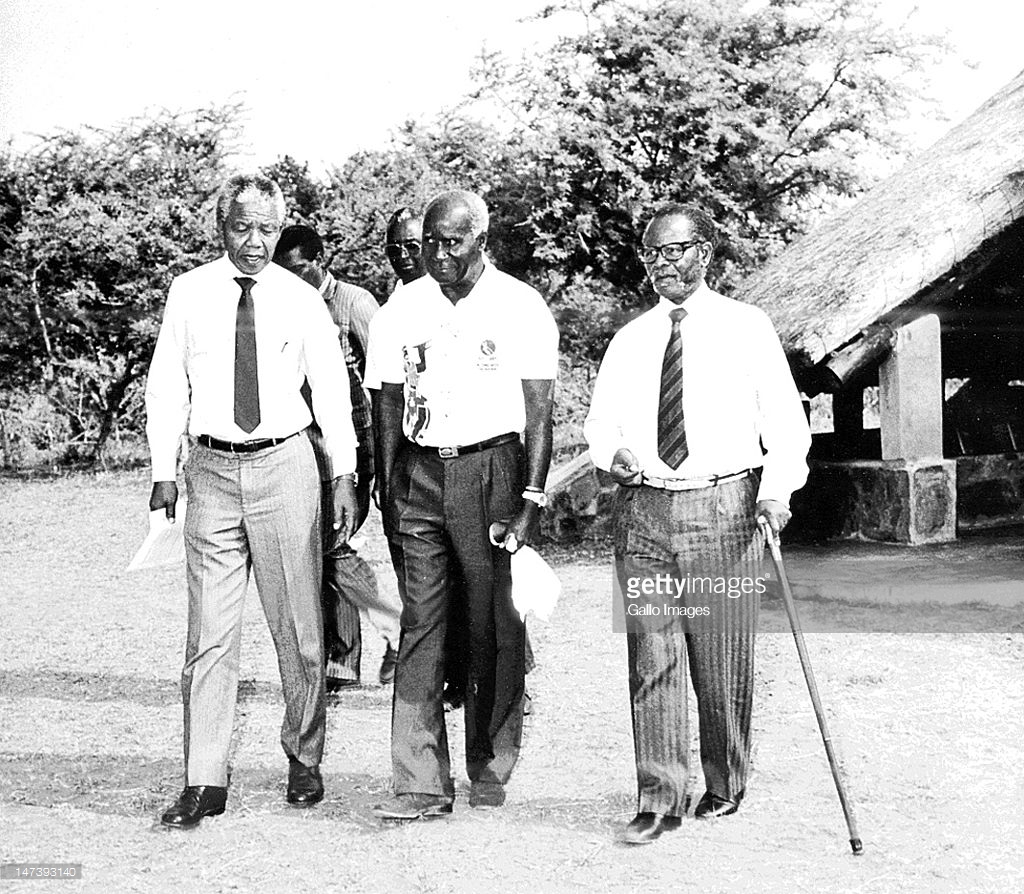
Nelson Mandela with Kenneth Kaunda and Oliver Tambo on July 11, 2008
Citizens of a country have obligations such as the need to pay taxes, register to freely vote, participate in political dialogue for development, be available to be elected to any office in the land, ensure that the country is safe and secure and ensure that foreigners do not live and behave as if they were Zambians. Whenever a foreigner aspires to be elected to any office, s/he must be scrutinized. Some people have suggested and argued that foreigners can only be allowed to be elected as councilors only. This is debatable and it is up to Zambians to decide which is feasible.
Foreigners cannot be allowed to be elected as Members of Parliament (MPs). They cannot also be allowed to stand in the Presidential elections.
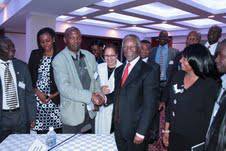
Derrick Sinjela with President Thabo Mbeki 7th December 2013 pix by Arthuur Davies Sikopo
These positions are reserved strictly for Zambian citizens by birth with both parents being citizens of Zambia as explained above.
Leadership at the level of President of the Republic of Zambia and Members of Parliament are very serious businesses in the Republic. Officeholders of such positions must be well known Zambians with a record of good behavior, commitment and dedication to development duty. Such cannot be ceded to foreigners whose interests are to reap undeserved rewards.
Foreigners cannot sympathize with poverty of rural Zambians because they are themselves fortune seekers who came to towns in Zambia to make money. They cannot think beyond their pockets. Foreigners may make the task of ridding out corruption hard and difficult because they, themselves, want to benefit from it. A foreigner can easily auction the country to the highest bidder!
The debate surrounding President Edgar Chagwa Lungu about his identity vis-à-vis his parentage is good and a sign that Zambians are vigilant. The duty to explain his Zambian citizenship rests with him alone. Other people like me who met him on the way, cannot give the full story of his citizen ship. Having gone to the same school together is not a standard to make him a bona fide citizen of Zambia. Many foreigners have gone to several schools in Zambia. Some have gone back to their original countries while others have stayed on.
Former and founding president of Zambia, Dr. Kenneth David Kaunda came from Lubwa Mission, or village if you like. He set up Shambalakale farm there because that was his original home. Dr. Kaunda’s father died in 1932 and was buried at Lubwa. His mother died in the early 1970s when Dr. Kaunda was president.
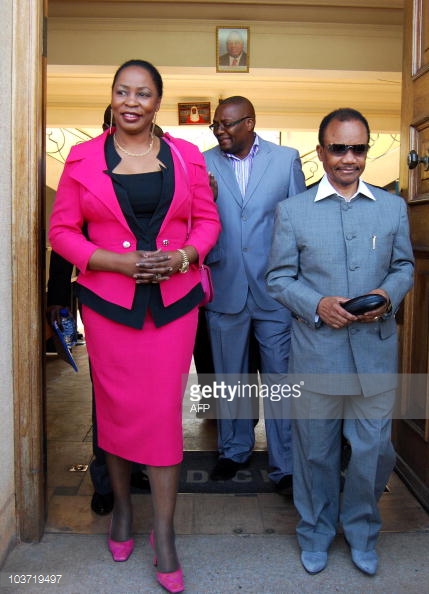
Late Dr. Frederick Jacob Titus Chiluba with wife Regina and Zambia’s High Commissioner to South Africa H.E. Emmanuel Mwamba
Second Republican president, the late Dr. Frederick Jacob Titus Chiluba, was born in Kitwe to Ms Diana Kaimba who hailed from Musangu village in Luapula province. Dr. Chiluba visited Musangu village before he was president and after he became president. Consequently, his story for being a Zambian was authenticated by his behavior of visiting and interacting with the villagers at Musangu, his original home.
The Third Republican president, the late Mr. Levy Patrick Mwanawasa, was born on the Copper-belt. His father was a Lamba fish merchant who ordered fresh fish from Luapula and sold the fish on the line of rail and the Copper-belt. Mr. Mwanawasa’s mother was Lenje.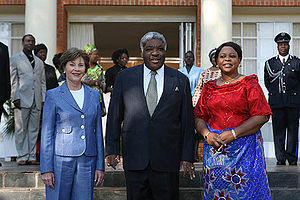
Fourth Republican president, Mr. Rupiah Bwezani Banda, was born in Southern Rhodesia of parents from Northern Rhodesia. He left his parents in Southern Rhodesia and came to school in Northern Rhodesia. He had a stint at Madzimoyo Primary School finished high school education at the then famous Munali Secondary School. Mr. Banda’s father, Bwezani, was Chewa of Chief Chikuwe in Chiparamba. His mother was Ngoni of what Ngonis call Mangena of Chief Mishoro in Chiparamba. This is why former president Banda’s famous quotation in local Ngoni parlance is “… akawere njala ikamuniokola!”
Fifth Republican president, the late Michael Chilufya Sata, repeatedly said, “I was born under a tree in a village at Mpika.” This meant and still means a lot in his being an indigenous Zambian. Mr. Sata’s parents were well known local people at Mpika. Former and late president Sata’s father was a go-between in the marriage between Kenneth Kaunda and Betty Banda at the old town of Mpika in the late 1940s.
President Edgar Chagwa Lungu as the 6th president must vouch for himself on his origins because it is good and necessary to do so.
We need a record to be straight and clear. If he has not been to the villages where each of his parents came from, he must say so. He must say when each of his parents died and who they left him with. His father was not alone. His mother was also not alone. Our families in Africa and Zambia are generally big and in most cases we contact each other when there are marriages, illnesses and funerals.
When did Edgar Lungu visit any of his relatives before he became involved in politics in 2011 and later to become Republican president in 2015 in the confusion created by the late president Sata who had an ineligible person as vice president of the Republic of Zambia. BBC World Service conducted a poll on Guy Scott’s eligibility to the presidency of Zambia. Africans overwhelmingly voted that they were not ready to have a white person lead them in that position because of their parents’ involvement in colonial atrocities.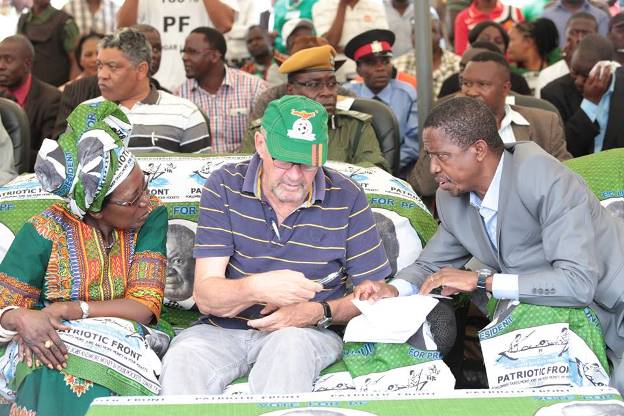
My relatives, for instance, still visit me even after my father died in 2004 and my mother died in 2012. Generally, I know of nobody who is alone. Some people who have lost all parents and relatives link themselves to friends. It works in their best interest as human beings.
I saw a number of Nsenga Chiefs vouching for president Lungu on television the other night. I, personally, know some of them because I have visited them at their palaces and met them at Mtenguleni during Ncwala. What they did, however, was unacceptable and degrading to their positions as chiefs. It is President Edgar Chagwa Lungu who was expected to go to their palaces to explain who he really is. It is not wrong or improper for any leader to eat lunch or dinner at a village. There is a way we arrange such functions.
President Ali Bongo of Gabon was a stray child who late president Omar Bongo adopted and raised properly. After president Omar Bongo died, Gabonese people elected Ali to succeed Omar. Ali was born and raised as a child of Gabon. It is very important to keep histories of individuals, societies and countries for future reference.
Mr. Andreya Masiye, a WW II Veteran, Civil Servant and Lawyer died on September 14, 2016, according to a Zambia Daily Mail report.
Mr. Edgar C. Lungu worked for Andreya Masiye & Company for several years after he left Investment Holdings in Kitwe. It was Mr. Masiye who actually settled Mr. Edgar Chagwa Lungu back in Lusaka as a lawyer. Mr. Edgar Lungu had worked at Zambia State Insurance Corporation Ltd from 1984 with Mr. Bwalya Stanley Kasonde Chiti.
This record is casual and cannot be used to fully account for President Lungu’s roots as a citizen of Zambia. Once again, he, alone, must vouch for himself adequately.
Why was Mr. Andreya Masiye’s funeral not publicized when a former junior workmate was at State House? Why was the casket of Andreya Masiye’s remains reportedly not taken the Supreme or High Court for the usual requiem? Mr. Masiye was a very senior Lawyer in Zambia. He pioneered private practice after retiring early from the Civil Service.
Perhaps, the Chief Justice and Law Association of Zambia have explanation about this omission.


